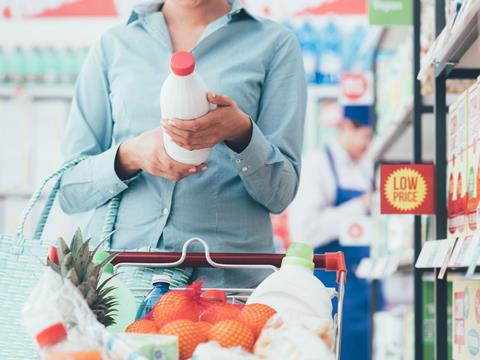
A global assessment of recycling and sustainability labelling on plastic packaging claims to have found that only 17% of assessed labels give consumers quality information to make informed recycling and purchasing decisions.
The research from the UN Environment Programme, Consumers International, and the One Planet network reportedly found that 20% of the 30 worldwide labels assessed were given a negative score by consulted experts. 17% were positive, with the rest receiving mixed or neutral results.
In response to these findings, the authors of the report have created five global recommendations for action with the aim of engaging business, policymakers and standard setters in creating better plastics labelling to make sustainability “the easy choice for consumers.” The recommendations are as follows:
- Businesses should follow the Guidelines for Providing Product Sustainability Information in their plastic packaging communications.
- Global consistency when it comes to definitions relating to the content and reusability of packaging or disposable items.
- The definitions and technical requirements used in standards related to recyclability, compostability, and biodegradability should better reflect real-world conditions and be more attentive to accessibility and consumer understanding.
- The use of the ‘chasing arrows’ symbol should be restricted to indicating recyclability.
- Informative and verified recycling labels should be adopted and their proper use enforced.
It is the authors’ view that the information provided to consumers is often unclear, leading to reported confusion and mistrust. They identify a lack of standardisation and accountability and argue that individual brands are creating their own labels and claims without third-party certification. In their opinion, a global, multi-faceted, multi-stakeholder approach is the only way to tackle a crisis on this scale.
Helena Leurent, director-general, Consumers International, commented: “As the world rebuilds after COVID-19, we must focus on rebuilding our economy but doing this in a way that meets the Sustainable Development Goals. We have a unique opportunity to change and rebuild systems to work for people, business and the planet. To accelerate sustainable solutions to the world’s biggest challenges we need to bring together dedicated, innovative and ambitious people across all areas of the plastics infrastructure.
“Consumers are increasingly aware of the impact of plastics on the environment, however the information provided on plastics is not always clear and actionable. The five global recommendations for action will support businesses, policy and standard setters to enable consumers to make sustainable choices.”
The report can be read in full here.













